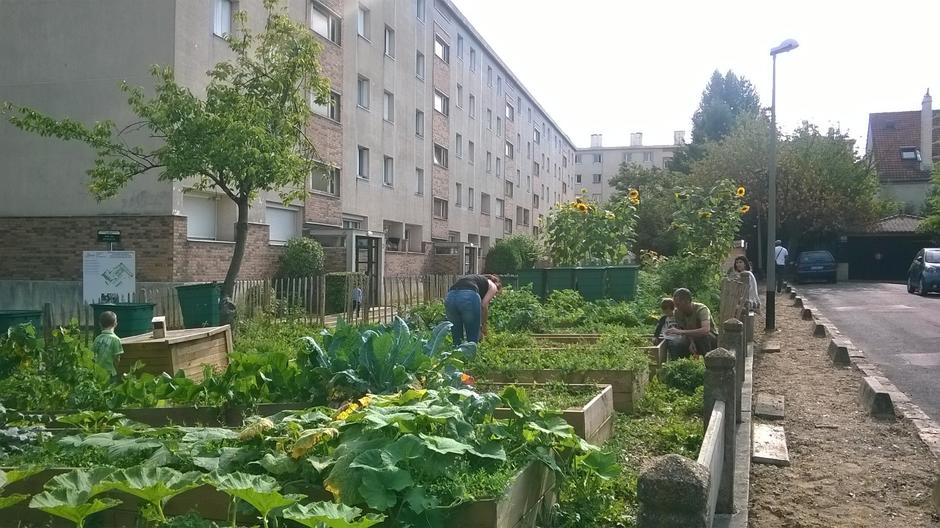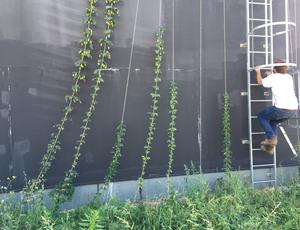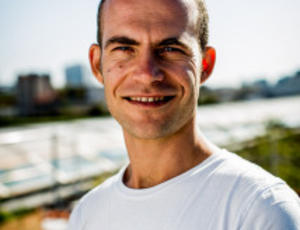
Social and Employment
Location
Aubervilliers (France)
Sponsors
Pauline Dumons
Géraldine Petit
Luc Mosqueron
Grants
€150,000 (over three years, of which €65,000 in 2016) at the Board of Directors meeting of 27 June 2016
€25,000 at the 10/4/18 Selection Committee
€40,000 at the 27/3/19 Selection Committee
Project sponsor
"Espaces is an association for social inclusion by urban ecology. The objective is to develop jobs in environmental and nature trades for people in difficulty."
Yann Fradin, Managing Director of Espaces
Espaces is a 1901 French law organisation founded in 1994 and uses urban ecology to get people in difficulty back to work. Its three main focus areas are employment access, urban ecology and environmental awareness raising. Based in the French departments of Hauts-de-Seine and Yvelines and in Paris, the organisation runs 15 employment access projects with a total of 130 back-to-work jobs and a permanent team of 60 staff. The organisation also boasts 130 volunteers and 650 members.
Espaces targets people who are very out of touch with the labour market (RSA (tax credit) claimants, young people, older people, workers with disabilities) and offers them jobs such as eco-council worker, green spaces worker, gardener etc. All of the employees on the back-to-work scheme receive social and careers support from an advisor. The aim is to help them to stabilize their difficult social circumstances, define a career path, make them more employable, and then offer access to employment or training.
From integration to urban agriculture
Since 2000, the organisation has been placing the emphasis on the link between urban areas and the environment by developing significant expertise in environmental engineering. It runs over 25 shared and community gardens, all run according to the "zero pesticides" ethos. Two of the gardens are located on rooftops. Espaces got involved in urban agriculture projects in 2016. With the support of the Veolia Foundation, Espaces launched Culticime, in partnership with a company specialising in urban vegetable garden and garden design - Topager.
Topager designs, plants and maintains urban gardens and vegetable gardens. The company was founded in 2013 by Nicolas Bel, an urban agriculture expert, and Frédéric Madre, researcher at the French National Natural History Museum. Topager has already completed some 20 projects in the Paris region and currently runs 10 production and wild sites.
A dedicated roof in Aubervilliers
A first trial of this action-research project took place on the roof of a shopping centre in Aubervilliers where the Veolia Group moved its head office in 2016. JSFB Victor Hugo, the owners of the Fashion Center, opposite Le Millénaire shopping centre, entrusted its rooftop to the Espace-Topager partnership. The potential growing area stretches across 2,000m² and the topsoil is 1m deep - exceptional on a rooftop - enabling trees to be planted.
Espaces coordinates the project and the human resources, while Topager supplies the agronomic expertise and monitors the crops. The principles of agro-ecology are applied to crop-growing. No chemical fertilizers are used, biodiversity is respected, and biological interaction between species is encouraged. Crops are irrigated by a precise drip-irrigation system, which saves a lot of water. The objective supported by the Veolia Foundation is ambitious - create a new, profitable and replicable urban agriculture economic model which creates back-to-work jobs.
And it has started to take shape: to cultivate the Fashion Center roof, 12 full FTE* back-to-work jobs will be created over three years by Espaces. As for the produce, the first lettuces were sold in October 2016 to local residents from a stall and a local AMAP**.
2018: tripling of cultivated areas
Bolstered by the results achieved over the first two years of action-research (2016-2017), both in terms of how the scheme is operating, yields and local sales prospects, Espaces wants to continue with this action-research and triple the growing area in 2018. To this end, a new rooftop plot (1,000m²) needs to be prepared and connected by a walkway to the other green roofs. The Veolia Foundation is supporting this development project which will bring a new dimension to Culticime.
The objective today is to continue market gardening activities, a support for integration, with the ambition of making the system economically sustainable. The support of the Veolia Foundation, renewed in 2019, is part of this dynamic.
---
* Source: http://www.fao.org/urban-agriculture/fr
** An AMAP (association for the preservation of local farming) is the result of a group of consumers and a producer coming together and entering into a contract together. This contract defines, in particular, the diversity and quantity of foodstuffs to be produced for the season, agronomic methods (based on the Local Farming Charter and organic farming specification), food package price, and the place and time of regular distribution.



